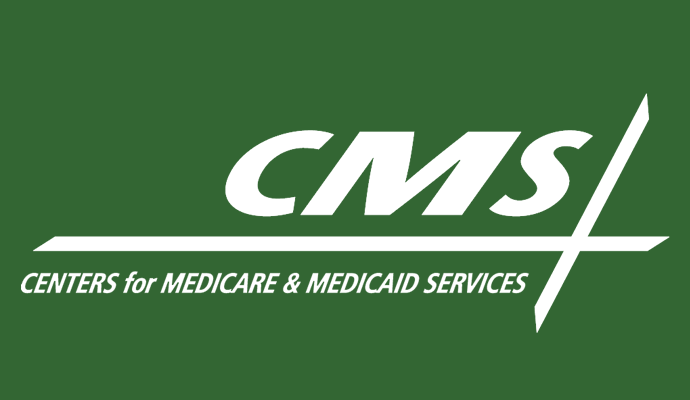CMS Model Aims to Improve Maternal Health Outcomes, Access to Care
CMS will select up to 15 state Medicaid agencies that will receive technical and financial assistance to improve maternal health outcomes.

Source: CMS Logo
- CMS has launched a new care delivery model to address maternal health outcomes and increase pregnancy and postpartum care access.
The Transforming Maternal Health (TMaH) model will run for ten years and support state Medicaid agencies in improving health outcomes for people with Medicaid and Children’s Health Insurance Program (CHIP) coverage.
“We have heard loud and clear that many women do not feel listened to or supported during their birth experience, and the current rate of maternal morbidity and mortality is deeply concerning,” CMS Deputy Administrator and Innovation Center Director Liz Fowler said in a press release.
“This model aims to improve health outcomes for mothers and their newborns, and support a system that makes mothers feel empowered, safe, and healthy throughout their pregnancy and postpartum.”
State Medicaid agencies participating in the TMaH model will receive funding and technical assistance to facilitate access to maternal health providers—including midwives, freestanding birth centers, and doula services—and improve care quality.
Better access to these resources can lead to reductions in cesarean sections for low-risk pregnancies, lower utilization of pain medication during birth, shortened labor time, and lower rates of postpartum anxiety and depression.
Participants will work with their hospitals and health systems to help them achieve the CMS Birthing-Friendly designation, which indicates facilities with a focus on maternal health. States will also work on implementing evidence-based practices, such as monitoring pregnant people at home who are diagnosed with conditions that can lead to pregnancy-related complications.
The model’s whole-person approach includes developing personalized birth plans for each patient that reflect physical, social, and mental health needs.
Maternity care providers in participating states will screen for and address health-related social needs, such as limited access to nutritious food, substance use disorder, or housing insecurity, by connecting patients to community-based organizations.
The TMaH application period opens in Spring 2024. The pre-implementation period will span three years, from January 2025 to December 2027, to prepare participants for model implementation. Selected state Medicaid agencies may receive up to $17 million over the ten-year period to support model implementation.
The model furthers the Biden-Harris Administration’s goal of advancing maternity care quality, safety, and equity. It supports the White House Blueprint for Addressing the Maternal Health Crisis and the CMS Maternity Care Action Plan.
Additionally, the Administration has urged states to extend Medicaid and CHIP postpartum coverage to a full year under the American Rescue Plan Act.
“The maternal health crisis in our country is unacceptable. The Biden-Harris Administration is committed to addressing this urgent issue and using all available means to eliminate disparities in our health care system,” HHS Secretary Xavier Becerra said in the press release. “This data-driven approach by CMS will help ensure we are improving outcomes for birthing parents and newborns. Expanding access to proven maternal health care best practices and initiatives will help moms and their children thrive.”
